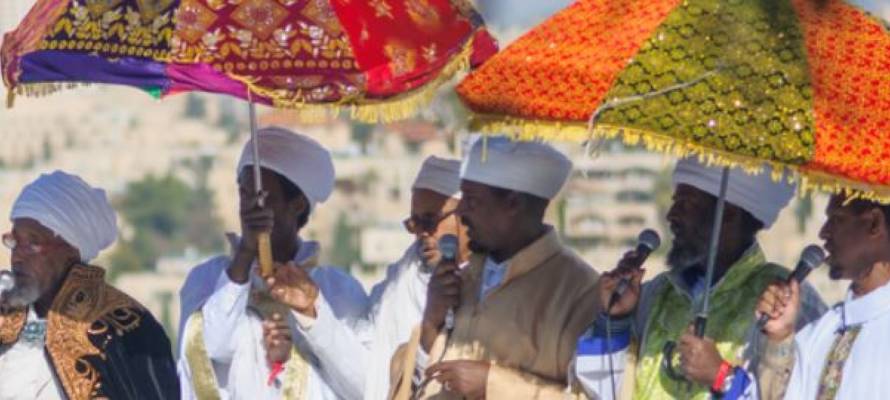The Ethiopian Jewish community in Israel celebrated Sigd on November 27.
By United with Israel Staff
Prime Minister Benjamin Netanyahu praised Israel’s Ethiopian Jewish community on the eve of its Sigd festival on Tuesday. Sigd is an ancient Ethiopian holiday that dates back to at least the 15th century.
The PM said that the holiday “expresses the covenant of the Ethiopian Jewish community with our freedom, our Torah and our land, and especially with Jerusalem. I salute your great devotion to maintaining Jewish identity in exile over so many generations,” Times of Israel reported.
“In the more than 2,000 years the Ethiopian [Jewish] community was living in Ethiopia, the main theme for the [Sigd] holiday was returning to Jerusalem,” Bezawit Abebe, the speakers’ coordinator for the international organization Be’chol Lashon (In Every Tongue), which promotes understanding of the diversity of Judaism worldwide, explained, according to Jewish Boston. “People would come from all over, more than 500 villages, and collect together in a bigger village called Ambober.”
Abebe said that the Ethiopian community would climb to the highest mountain to “feel close to God and recall the giving of the Torah [to Moses],” reenacting the Mount Sinai episode from the Bible, “to renew [their] covenant with God, [to] renew the promise with God as Jewish people to reunite.”
Though the Ethiopian community has made great strides in Israel, it has also faced racism, discrimination and poverty. The PM said that his government was “fighting against” these struggles.
Sigd is celebrated 50 days after Yom Kippur, the Day of Atonement, similar to the way that the celebration of Shavuot, the day the Jewish people received the Torah, is celebrated 50 days after Passover. While for Yom Kippur is designed for personal introspection and self-correction, Sigd focuses on collective atonement as a community.
Celebrants participate in special prayers as well as fasting before the festival begins.
A large focus of Sigd is the return of Jews to Jerusalem following their exile. With most of the Ethiopian community now living in Israel, thousands of Ethiopians, along with their rabbinic leaders, called Kessim, who dress in traditional robes and carry Torah scrolls while holding multi-colored umbrellas, gather in Jerusalem’s Armon Hanatziv neighborhood promenade and view the Old City walls of the Holy City.
Psalms and other biblical passages are read by the Kessim. Those gathered then celebrate with food and dancing.
Israel officially recognized Sigd as a national holiday in 2008, following legislation submitted by MK Uri Ariel.
Netanyahu said that he was working to have Ethiopian religious laws and rites formally recognized by the state’s rabbinate. “We, in the government, passed a decision to formalize the status of the Kessim,” Netanyahu said, according to the Times. “I am very proud of it. We will integrate them as spiritual leaders in the religious services framework.”
Celebrations of Sigd have continuously expanded over the years. For example, Tel Aviv holds a “Sigdyada Festival” each year, which started as a small street festival, but today attracts thousands of people. Celebrants come to enjoy Ethiopian culture, music, clothing and food.
